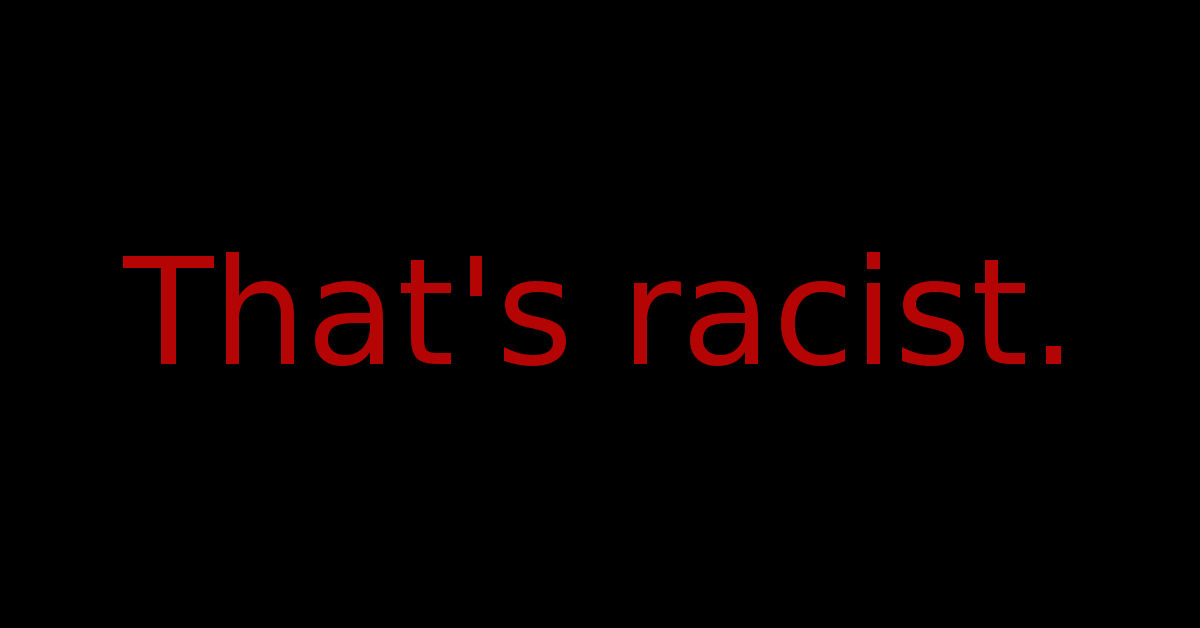A week ago, Hillary Clinton set political alarm bells ringing by consigning “half of Trump’s supporters” to “the basket of deplorables” in what was either a monumental gaffe or a brilliant strategic coup, depending on who you ask. (Time will doubtless tell, but he hasn’t yet.) Less discussed was the second half of her quote, as she elaborated on the nature of the “deplorables”: “racist, sexist, homophobic, xenophobic, Islamophobic…”
Personally, I liked the quote. It was neither gracious nor accurate, but the imagery is perfect. For many on the political left, these assorted phobias and ugly -isms function exactly as Clinton described—a basket into which any unwelcome sentiments can be cast and ignored. Worried about the potential of unlimited immigration to change Western culture? You’re a xenophobe. See some value in the definition of marriage which has been assumed for thousands of years? You’re homophobic. When “That’s racist” is a joke in high schools across the country, it may be a sign that your favorite condemnatory labels have been a bit overused.
Which is a pity, because racism, sexism, homophobia, xenophobia, and Islamophobia really do exist; are even, in fact, bigger problems than many on the right might like to admit. But instead of serving a useful purpose by calling out true wrongs, these labels and those who use them often just muddy the waters. The reason our phobias and isms are so imprecise and overused is because we have jettisoned the two most necessary criteria for moral condemnation: the categories of sin and objective fact.
The pointlessness of condemning someone’s words or deeds on grounds of a “phobia” is built into the word itself. After all, a phobia is a fear. Arachnophobia is fear of spiders. Claustrophobia is fear of tight spaces. Alektorophobia is, er, fear of chickens. We don’t typically blame people for their fears, even if those fears make them behave unkindly or irrationally. A chicken farmer whose friend has alektorophobia isn’t going to be offended if he isn’t comfortable coming over for dinner.
Yet we are expected to condemn people for “homophobia, xenophobia, Islamophobia” and the rest, which really gives the game away. We aren’t talking about phobias but about sins; but because we no longer believe in sin, we try to shoehorn moral condemnation into therapeutic language (a tendency not limited to the topic at hand). The result is an incoherence which goes deeper than words and has infected the isms too. Ultimately, all these sins are violations of the Golden Rule, but without the objective and clarifying structure of a moral standard, a phobia or ism can encompass anything at all. So, for example, a young man running for student Senate is condemned as “xenophobic” and “racist” for a hyperbolic campaign poster featuring him wearing sunglasses and an American flag tie, clutching a copy of the Constitution and an assault rifle, in front of an American flag. A bit absurd? Absolutely. Racist? I’m… not seeing it. But all that matters is that someone somewhere saw it. Once racism has been unmoored from any objective moral criteria, every diagnosis carries equal weight.
Worse, there is no way to discuss the question, because in addition to the category of sins, we have also thrown out the category of facts. In the words of Nietzsche, “There are no facts, only interpretations.” From recognizing (correctly) that everyone’s ideas are colored by their own perspectives, biases, and limitations, we have gone on to conclude that it is impossible to sort through those different interpretations to reach a reasonable, objective conclusion. We cannot say who is right or wrong; all that anyone’s words can reveal is whether they have problematic phobias or isms which need to be eradicated.
Thus, pointing out, say, that the majority of the recent “refugees” to Europe were young, unaccompanied men is simply racism and xenophobia. Full stop. Is it true? Doesn’t matter. Racism. Xenophobia. Of course, if we could just get the objective facts straight we could move on to the more difficult question of what to do about those facts—and we would doubtless discover that some of the proposed solutions were in fact racist and xenophobic, or morally wrong for some other reason. But when a mere interest in reality condemns one to the “basket of deporables,” that basket is going to get very full very fast, and when it starts to spill over, what washes out may include much which really did belong there in the first place.
In the end, bad actions are sinful, bad facts are false, and the prevalence of both demands clear thinking and clear speaking. Next time someone says something which offends us, rather than hauling out our favorite phobia, perhaps we ought to ask yourselves, “Is it sinful?” “Is it false?” If it’s neither, it is probably none of our business. And if it is one or the other, rather than obscuring things with a vague and overused label, let’s call it what it is: wrong.

